The Teleological Argument
1/49
Earn XP
Description and Tags
Theme 1: Arguments for God’s existence - B
Name | Mastery | Learn | Test | Matching | Spaced |
|---|
No study sessions yet.
50 Terms
What is an argument?
a chain of reasoning in which reasons are put forward to justify claims
‘initial claims or premises, provide good reasons for the conclusions we seek to establish’
Christopher Falzon, Philosophy Goes to the Movies
DEFINITION: AN ARGUMENT CONSISTS OF ONE OR MORE CLAIMS (PREMISES) AND A CONCLUSION. THE PREMISE SHOULD SUPPORT THE CONCLUSION.
How can an argument be described as valid?
An argument is valid if the conclusion follows on logically from the premises, if we accept the premises we must also accept the conclusion.
What is a not sound argument?
an argument that is valid but not true
What is a non- valid argument?
An argument where the conclusion can be rejected despite acceptance of the premises.
What is a deductive argument?
The premises are intended to provide such strong support for the conclusion that, if the premises are true it is impossible for the conclusion to be false. The conclusion is logically necessary.
What is an inductive argument?
The conclusion is a matter of probability, making inferences and drawing general conclusions from particular examples. Uses observation and previous experience. (cannot be valid or non valid, only strong or weak)
Problem with deductive reasoning?
tells us nothing new with the world because the conclusion is contained in the premises
e.g. a triangle has 3 sides
Problem with inductive reasoning?
conclusion is only a matter of probability
Define an Argument from Analogy
A chain of reasoning that justifies a claim where similarities and characteristics between two different things are used to support the conclusion that, if they are similar in ways A,B and C then they are likely to be similar in way D as well.
Inductive generalisation
inferring that all members of a certain class will be similar top those we’ve actually observed.
Inductive prediction
an assumption about a future event based on experience with past events.
causal generalisation
Hume says we can’t determine the hidden casual powers of particular things (e.g. the coldness of ice) simply by scrutinising them carefully, we infer these capacities from our experience with those kind of things.
inductive principle
similar effects come from like causes
A priori ?
knowledge which is not dependent on experiences and is known through reason alone.
A posteriori ?
knowledge that can only be known through experience (synthetic statements)
What are the two ways of knowing about God?
Natural Theology
what we can work out about God based on an observation of the world around us and the use of reason.
e.g. characteristics of God
Revealed Theology
what God has made known to us - like in the Bible , that we couldn’t know independently because it goes beyond reason and observation.
e.g. nature of the Trinity, the incarnation
What is the teleological argument?
a posteriori argument
usually considered an argument from analogy - a comparison is made between human made objects and features of the world.
a form of inductive argument
the basic structure of the argument:
- P1 the universe shows order, regularity, complexity and purpose.
- P2 order, regularity, complexity and purpose can only arise as the result of design.
- P3 if something is designed it must have a designer
- P4 The designer of the universe could only be God.
Conclusion- God exists.
What does telos mean (greek)?
end or aim
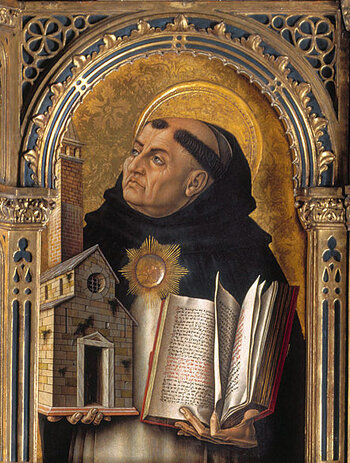
Who was St. Thomas Aquinas?
Lifespan
Influence
Name of book of writings
An Italian priest
1225-1274
Aristotle- the only way to explain the regularity of these phenomena is to think about them acting for some kind of purpose.
Summa Theologica
What did Aquinas describe reason as?
the handmaiden of faith
What is Aquinas’ fifth way?
PREMISE 1: Things in nature act towards an end e.g. natural bodies
PREMISE 2: Whatever lacks intelligence cannot move towards an end unless directed ANALOGY: an arrow needs an archer to hit the target.
INTERMEDIATE CONCLUSION: Therefore, some being exists which directs things in nature towards their end.
PREMISE 3: This being we call God
CONCLUSION: Therefore, God exists.
Why does Aquinas make the comparison of God and The Archer ?(not because he’s a swiftie)
To indicate that arrows cannot be shot without an archer directing them and this represents God directing all natural beings to their aim, as he believes they cannot exist and have an end unless they have a director.
Strengths of Aquinas’ argument
based on observation- we can observe many aspects of nature that seem to act for an end.
follows common sense assumptions about what we know the world to be like
thinking about the purpose for which these things act is the only way to explain the regularity with which they occur
less susceptible to evolution challenge because it looks at regularity not complexity
Problems of Aquinas’ argument
are things in nature really acting with a purpose?- Richard Dawkins thinks not.
Is regularity a coincidence?- the movement of natural bodies (planets) can be explained by gravity.
is the designer God? there could be multiple intelligent beings, the being might not be the Christian god etc.
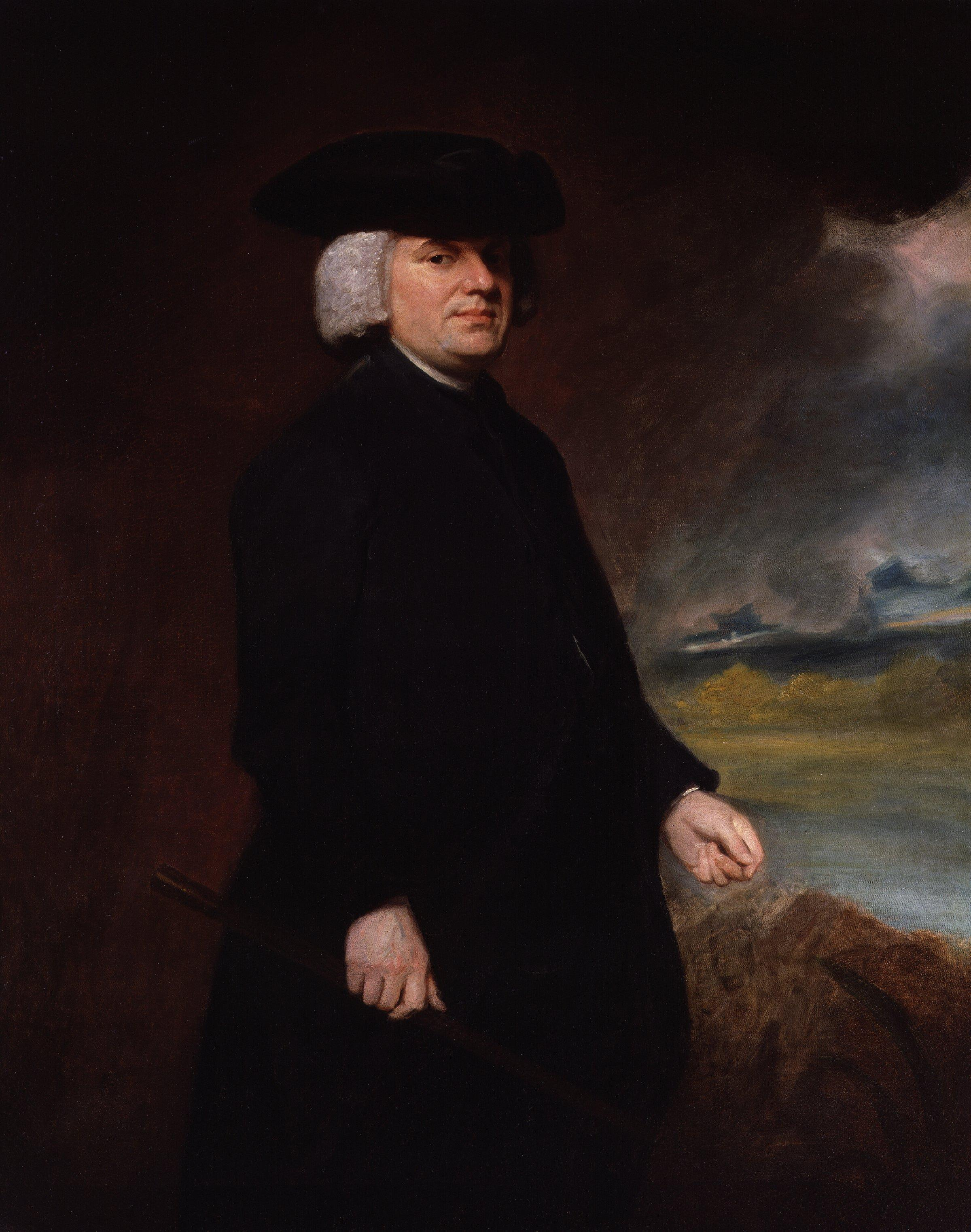
Who was William Paley?
Lifespan
An English clergyman, Christian apologist, philosopher, and utilitarian. He is best known for his natural theology exposition of the teleological argument for the existence of God
1743-1805
What was Paley’s teleological argument?
an argument from analogy
in a basic sense: a watch shows features of design, it has a designer, the natural world shows features of design, it has a designer, and the world is greater than a watch so the world’s designer must be greater.
WATCH ANALOGY
features of design: purpose and complexity
it has a purpose- to tell the time
it has several parts put together to help serve its purpose- cogs
if one of the parts were removed, it would not work
the parts are made from particular materials that are best suited.
there is evidence of these features in nature - the eye
if we are justified in concluding that the watch was designed, we must conclude the same about the world which shows the same features of design
the world is so much greater than the watch, the designer must also be infinitely greater- therefore the designer must be God
Paley- responding to criticism
We have never seen a watch made- we would still be justified in concluding it was designed because of its features.
The watch sometimes goes wrong – it isn’t necessary to show that the watch is perfect to show that it has been designed.
The watch may have come about by chance – it is much more probable that it was designed and made by a watchmaker. Nobody would believe that a watch just spontaneously appeared.
We should still conclude the world has been designed, even if:
•We have never seen the world being made
•We don’t know how it was made
•The world sometimes goes wrong (problem of evil)
challenges given by Hume (died 25 years before)
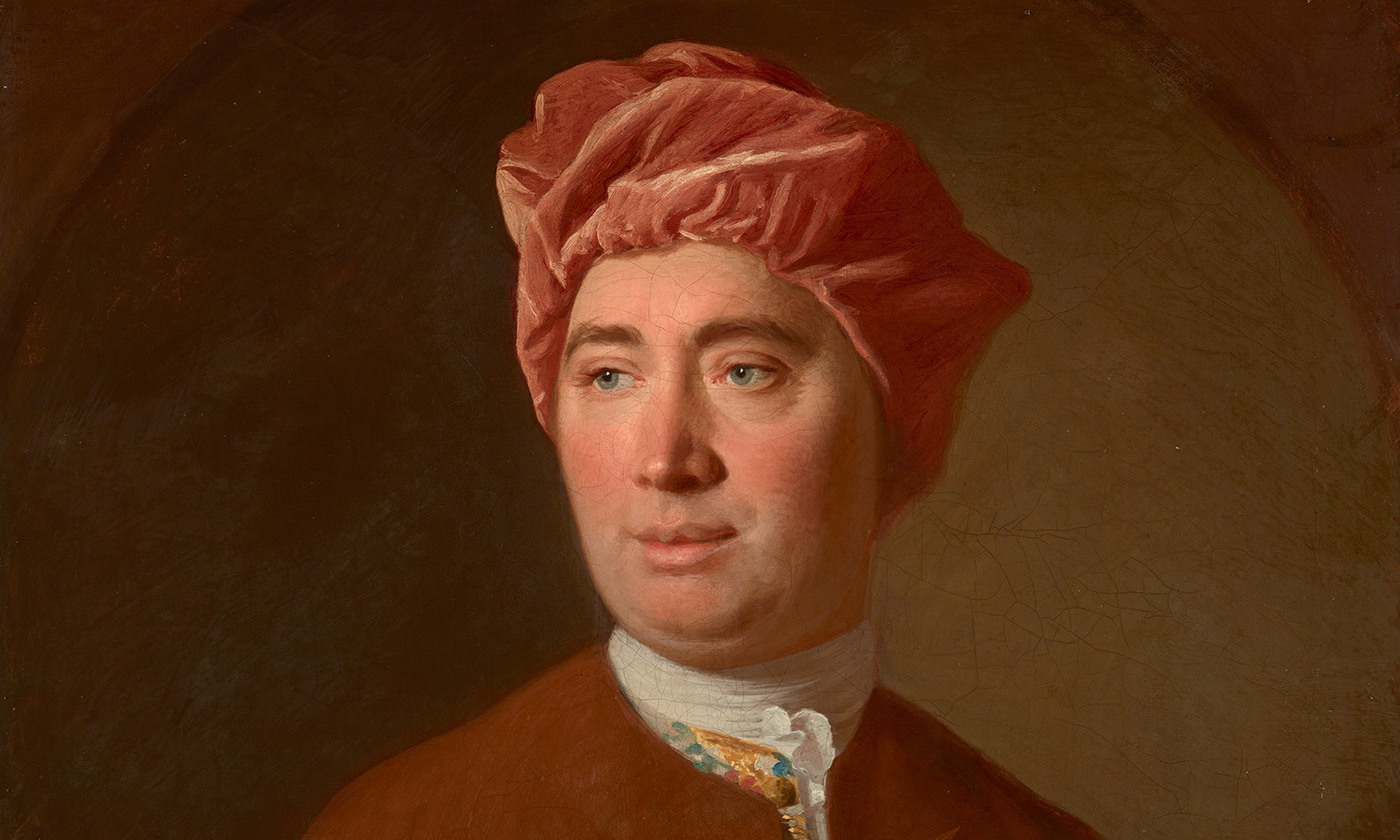
Who was David Hume?
Lifespan
Name of work
A Scottish philosopher
1711-1776
Dialogues concerning natural religion- Cleanthes (character) presents the teleological argument and Philo said to represent Hume’s views gives several challenges.
What do Hume’s challenges focus on?
- the assumptions in the argument:
we know from our experience that purpose, complexity and order only come about because of design.
Since the world and human-made objects are alike in their features, they must also be alike in causes.
Why does Hume think that the argument rests on a false analogy?
what does Hume later suggest the world has more in common with?
How might proponents of the teleological argument respond to Hume?
the world is not sufficiently similar to a human-made object that we can conclude that it must also be the product of design
the world has more in common with an animal or vegetable because it grows and changes
Paley claims that it is not necessary to have experienced intelligent designers producing objects to know that they were designed. We can know by other means that something has been designed. For example, if we had never seen a watch before, or any other kind of machine, there are certain features of it that would lead us to conclude that it had been designed.
What does Hume think about our experiences being the basis for the comparison between designed human-made objects and therefore a designed universe?
How might proponents of the teleological argument respond to Hume?
Hume doubts whether our experience of the world is enough to conclude that order must always come about as a result of design. Just because this is what we have experienced doesn’t mean it is necessarily true at all times and in all places. Our experience is limited to the tiny part of it we inhabit.
It is very probable that there exists a universe that is non-designed that contains both order, purpose and complexity
Experience does prove a designer because of the frequency and regularity of the experiences
what is the Epicurean Hypothesis
+ responses to it
an entirely natural explanation for the appearance of design in the world
order could be a result of random chance
matter could be eternal and in constant motion
given an infinite amount of time, one of the random combinations that all particles form could be an ordered system. It would have the appearance of being designed
When we think about Paley’s watch, we are unlikely to conclude that it arranged itself into that complex and orderly pattern by random chance. Order is extremely unlikely, andbecomes increasingly improbable the more evidence we find of order in the world. We would have to account for not only the appearance of individual parts of organisms, but that they work together within a complex system, and that these are found in an ordered universe.
What does Hume think are equally valid conclusions about the designer?
How might proponents of the teleological argument respond to Hume?
If we accept that the world is similar to a human-made object or machine, then we must look for similar causes.
This would mean that:
•The designer is not infinite
•The designer is not perfect
•The designer would be anthropomorphic
•There may be multiple designers.
Paley points out that the universe is infinitely more vast and complex than a human machine, so it stands to reason that the cause would be as well. This implies something closer to the concept of God that people hold.
When one God would explain the phenomena we see as well as many gods, we should go with the ‘simplest explanation’.
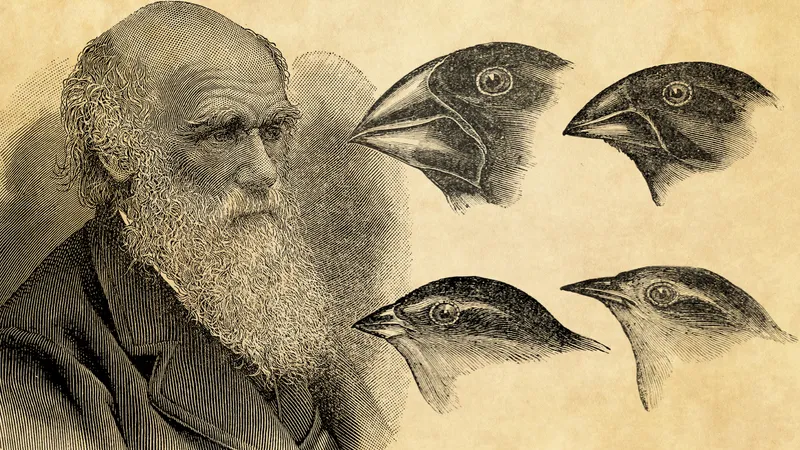
Who was Charles Darwin?
Lifespan
A naturalist, previously a Christian but he proposed in the organ of species that all species of life have descended from a common ancestor and this theory is now generally accepted and considered a fundamental concept in science.
1809-1882
What is the theory of evolution?
The theory of evolution by natural selection states that random mutations may lead to changes to physical characteristics.
If these characteristics offer an advantage in survival (e.g. make them more adapted to their environment) they are more likely to survive, reproduce and pass on this advantage to their offspring.
Organisms with the characteristic are able to out compete those without it.
Eventually, a change takes place to the whole population, where more organisms have this advantageous characteristic. Given enough time, a new species can arise from these gradual, incremental changes.
How does the theory of evolution challenge the teleological argument?
-It explains why organisms appear so well-suited to their environments without reference to a designer.
-It can explain how complexity arises over long periods of time rather than all the pieces needing to be in place at once.
-It shows that many aspects of nature are not harmonious or well-ordered e.g. the idea of ‘nature red in tooth and claw’.
How does the theory of evolution make Paley’s analogy of the eye false?
The eye was a famous example used by Paley to show design qua purpose. But evolution suggests that the eye developed gradually; its complexity can be explained without design.
What did Charles Darwin say about design?
With respect to the theological view… I
am bewildered… I own that I cannot see, as plainly as others do… evidence of design and beneficence on all sides of us. There seems to me too much misery in the world. I cannot persuade myself that a beneficent and omnipotent God would have designedly created the Ichneumonidæ with the express intention of their feeding within the living bodies of caterpillars, or that a cat should play with mice. Not believing this, I see no necessity in the belief that the eye was expressly designed.
On the other hand I cannot anyhow
be contented to view this wonderful universe and especially the nature of man, and to conclude that everything is the result of brute force. I am inclined to look at everything as resulting from designed laws, with the details, whether good or bad, left to the working out of what we may call chance.
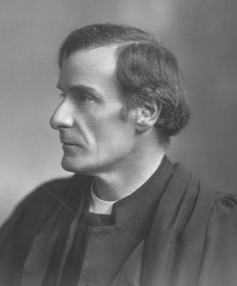
Who was F. R. Tennant?
Lifespan
Name of work
British theologian, philosopher of religion and author
1866-1957
A more modern version of the teleological argument is presented by F. R. Tennant (1930)In his work: Philosophical Theology (Vol.2) . This argument tries to incorporate scientific findings, including the theory of evolution, into the argument.
What key observations does Tennant focus his argument on that can serve as evidence of teleology within the natural world
· The knowability and intelligibility of the world
· The internal adaptedness of organic beings
· The fitness of the natural world for life (the anthropic principle)
· The aesthetic value of nature
· The progressiveness of the evolutionary process culminating in the emergence of rational and moral beings
1. The Knowability and Intelligibility of the World
Tennant draws attention to the fact the world seems to be ‘more or less intelligible’. He points to the possibility that the universe could quite as easily have been chaotic, ‘in which similar events never occurred, none recurred, universals had no place, relations no fixity, things no nexus of determination, and 'real' categories no foothold.’ This is then an observation of order and regularity in the world.
However, Tennant is cautious is saying that this on its own is clearly evidence of design. Mindful of challenges put forward by people like Hume, he notes that ‘similar ordering is sometimes due to human design; that it always is due to design we have no means of knowing.’
2. The Internal Adaptedness of Organic Beings
Tennant notes that arguments such as Paley’s, which rely solely on complex biological structures in nature as evidence of design, cannot be considered plausible in the wake of the discovery of evolution by natural selection by Charles Darwin.
“The sting of Darwinism.. lay in the suggestion that proximate and 'mechanical' causes were sufficient to produce the adaptations from which the teleology of the eighteenth century had argued to God.”
F. R. Tennant – Philosophical Theology (Vol. 2)
However, he notes that the fact of evolution by natural selection, is not incompatible with teleology on a ‘grander scale’. Rather than looking at specific biological structures, such as the eye, Tennant suggests we need to look at nature as a whole and to consider the progressiveness of the evolutionary process. For example, he suggests that there is room within evolutionary theory for the possibility that evolutionary developments are externally predetermined or guided, so that the process may be controlled by God. This becomes particularly so when we consider the evolutionary progression of life towards intelligent and moral beings.
3. The fitness of the natural world for life
Tennant suggests that a study of the natural world reveals that it is ‘plainly adapted for life’. This is sometimes referred to as the anthropic principle (however, Tennant did not use this term for it himself). He suggests that this needs a teleological explanation: it is as a result of design.
Tennant employs an argument from probability to explain these observations. He says the probability that ‘the apparent preparedness of the world to be a theatre of life’ came about as a result of chance would be ‘infinitesimally small’. In particular, Tennant draws attention to the laws that appear to be fundamental to the operation of the universe; the existence of life is dependent upon a multiplicity of coincident conditions, which he thinks cannot be reasonably attributed to chance. We can point to some of the most basic laws of physics to support what Tennant says. For example, it has been calculated that if the value of even one of the fundamental constants, such as the speed of light or the mass of an electron, had been to the slightest degree different, then no planet capable of permitting the evolution of human life could have formed. These observations have become the basis for many other modern design arguments, which suggest that the universe has been ‘fine-tuned’ for life. ‘Presumably,’ says Tennant, ‘the world is comparable with a single throw of dice. And common sense is not foolish in suspecting the dice have been loaded.’
Again, Tennant is aware of the possible challenges to this line of argument. He notes that it could be countered that a remarkable world might result from 'one throw' in spite of there being indefinitely large chances against it. Furthermore, echoing Hume, he points out that critics could claim that if the world is a unique or one-of-a-kind instance, we are not able to talk about how probable such a thing is to come about by chance. But he suggests that ‘alogical probability’ – that is the natural common sense and inductive reason we use as a guide to life – would suggest otherwise.
4. The Aesthetic Value of Nature
Tennant suggests the argument for design becomes stronger when we consider that the world is also a ‘bearer of values’, meaning not only that it can be understood but also appreciated. As such, he provides a further argument for design based on the observation that the universe is beautiful. This is sometimes referred to as the aesthetic argument. That humans find great beauty in the natural world suggests to Tennant that the universe was designed to be appreciated by intelligent beings.
“Theologically expressed, this is the belief that Nature is meaningless and valueless without God behind it and man in front; and that is what teleology in its comprehensiveness, and the aesthetic argument in its particularity, endeavour to establish… It becomes stronger when it takes as the most significant fact not the forthcomingness of beautiful phenomena but what may be called, with almost negligible need of qualification, the saturation of Nature with beauty.”
F. R. Tennant – Philosophical Theology (Vol. 2)
Tennant is keen to avoid making a false analogy. He notes that if the argument is expressed as saying that ‘since in human art a beautiful or sublime production is the outcome of human design, similar effects must everywhere be due to design’ then it will fail. Tennant therefore appeals again to what he calls ‘alogical probability’ to make a more persuasive argument.
Furthermore, Tennant suggests that science cannot explain the beauty inherent in nature or why we find it beautiful. He notes that beauty is a ‘superfluity’ – that is, it is unnecessary. For Tennant this is further evidence that the universe has been designed with intelligent life, like humans, in mind.
“If Nature's beauty embody a purpose of God, it would seem to be a purpose for man, and to bespeak that God is "mindful of him". Theistically regarded, Nature's beauty is of a piece with the world's intelligibility… and thus far the case for theism is strengthened by aesthetic considerations.”
F. R. Tennant – Philosophical Theology (Vol. 2)
5. Progressiveness of the evolutionary process culminating in the emergence of rational and moral beings
Tennant points out that the evolutionary process not only concerns survival but also progress, both physical and mental – “within the main line of development there has been a steady advance from amoeba to man.”
Tennant connects this observed progress to his observations made about the life-supporting qualities of the universe. It is not just that the universe is set up to foster life, but that its unique qualities have supported the gradual progress towards what he calls ‘the realisation of the good’. Tennant draws particular attention to the fact that humans have evolved to become moral creatures, suggesting that the universe has been ‘constructed for a purpose’. The only alternative, he says, to seeing this as a product of design, is to see the world as ‘comparable with letters of type which have shuffled themselves not only into a book or a literature but also into a reader commanding the particular tongue in which the book utters its unintentional meaning.’ Again, on the balance of probability, Tennant thinks that design is a reasonable conclusion.
“The multitude of interwoven adaptations by which the world is constituted a theatre of life, intelligence, and morality, cannot reasonably be regarded as an outcome of mechanism, or of blind formative power, or aught but purposive intelligence.”
F. R. Tennant – Philosophical Theology (Vol. 2)
As such, Tennant argues that these observations combined provide a rational case for belief in the existence of God as the designer of the universe.
The Anthropic Principle
•Tennant couples the anthropic principle with the observation that the evolution of life seems to be progressing towards some kind of intended aim - ‘the realisation of the good’.
•The universe not only supports life but has Humans have evolved to become moral creatures
•This suggests the universe was created for a purpose
•Purpose in the universe is suggestive of some kind of intelligence i.e. God.
The Aesthetic Argument
•This argument rests on the observation that the universe is infused with beauty.
•Beauty is unnecessary from an evolutionary point of view as it has no survival value, but it still exists.
•We need an explanation for why humans are able toappreciate beauty.
•He suggests that the most probable explanation is that it is a result of design, and serves the purpose of encouraging human minds to discover God.
An argument from probability
•Note that nowhere does Tennant say that the onlyexplanation is that this is a result of design.
•Instead, his argument appeals to an intuitive sense of probability – what is the most likely explanation?
•
“The aesthetic argument for theism becomes more persuasive when it renounces all claims to proof and appeals to alogical probability.”
F. R. Tennant